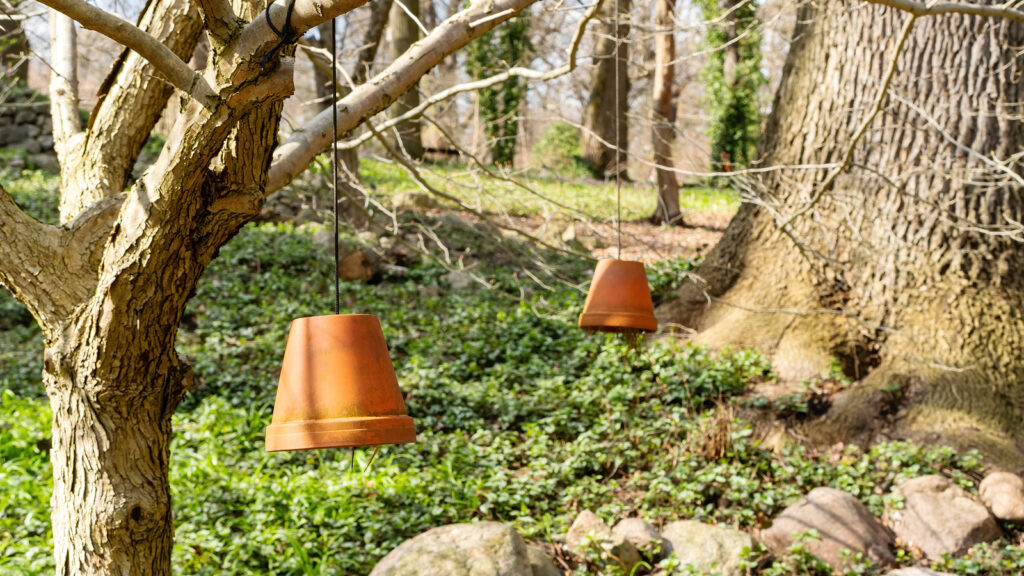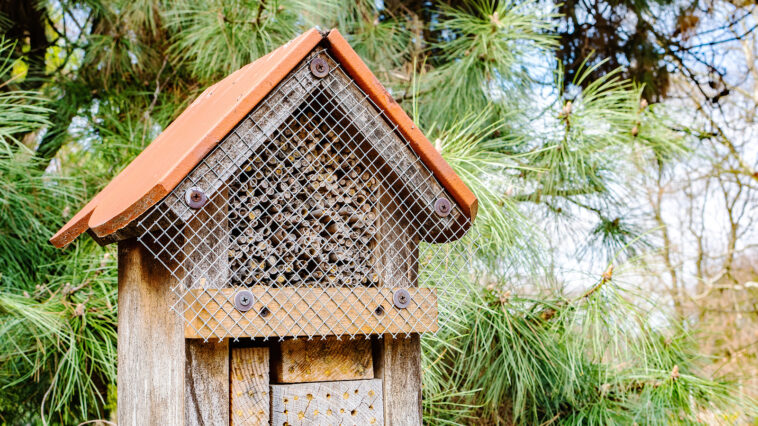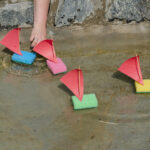DIY Pest Control
Dealing with pest infestations has been a real nightmare in my life as a homeowner. The discomfort they bring and the potential health issues they pose when left untreated can be incredibly frustrating. Instead of rushing to grab those chemical solutions, I've discovered the immense benefits of natural remedies.
Joining the growing trend of DIY pest control has allowed me to find tremendous success in adopting a more holistic approach to keep my home free of unwanted critters. In this personal guide, I want to take you on a journey into the world of natural solutions that have transformed my home into a bug-free haven, ensuring that my abode remains a safe and comfortable space for my family and me.
My journey into natural pest control began as a quest for a healthier and safer environment for my loved ones. I realized that chemical pesticides not only posed risks to our health but also had negative consequences for the environment. So, I decided to explore the world of natural remedies, and to my surprise, the results were remarkable.
From homemade pest repellents to simple changes in my home's cleanliness habits, I've discovered effective ways to tackle pests while maintaining a chemical-free environment. Through this personal experience, I hope to share my insights and knowledge to help you too embrace the benefits of natural pest control, making your home a place where you can enjoy peace, comfort, and the satisfaction of a bug-free living space
Why Go Natural? The Benefits of DIY Pest Control
There is a growing trend towards embracing natural solutions in many aspects of our lives, and pest control is no exception. Choosing to go natural isn't merely a nod to environmental consciousness; it's a comprehensive approach that weighs health, safety, and efficiency.
- Promotion of a Healthier Home Environment: Traditional chemical pest control methods often leave behind residues that can linger in our living spaces. Over time, these residues can potentially lead to a range of health concerns for family members, including children and pets. Opting for natural methods minimizes the risk of exposing your loved ones to these harmful substances.
- Cost-Effectiveness: One of the most compelling reasons to adopt DIY natural pest control is the potential for cost savings. Many of the remedies championed by advocates of natural methods can be made using everyday household items. This not only eliminates the need for pricey chemical solutions but also means you can often whip up a solution with ingredients you already have on hand.
- Commitment to Environmental Responsibility: Our planet is facing myriad challenges, many of which are exacerbated by widespread chemical use. By reducing our dependence on chemical pest control methods, we can play a part in lowering the environmental burden. This helps protect delicate ecosystems, the species that call them home, and ultimately, our own health and well-being. Embracing natural methods sends a clear message about our values and our commitment to a sustainable future.
- Long-Term Solutions: Many natural remedies aim at preventing pests by addressing the root causes, such as habitat modification or by disrupting their life cycle. This often provides more lasting solutions compared to chemical methods, which might only offer temporary relief and could require frequent applications.
- Reduced Resistance: Pests can develop resistance to chemical treatments over time, making them less effective. Natural methods, especially when varied and combined, can reduce the chances of pests developing immunity.
- Safety First: Chemical pest control solutions can be harmful if not used correctly. They often come with a list of precautions, necessary protective gear, and risks of accidental ingestion or skin contact. Natural solutions typically pose fewer risks, making them a safer choice, especially in households with curious kids and pets.
- Contributes to Biodiversity: Chemicals don’t discriminate. When applied, they can harm beneficial insects and creatures that contribute to the health of our gardens and ecosystems. Using natural methods ensures that beneficial organisms like bees, ladybugs, and earthworms remain unharmed.

Popular DIY Pest Control Solutions
Ant Control: Lemon Juice and Cinnamon Tactics
- Why It Works: Ants use pheromone trails for communication and navigation. The powerful scents of lemon and cinnamon interrupt these trails, making it difficult for ants to follow them, thereby disorienting the colony.
- Lemon Juice Solution:
- Preparation: In a bowl, blend equal parts of freshly squeezed lemon juice and distilled water. Stir well.
- Application: Pour the mixture into a spray bottle. Generously spray around key areas like doorways, windowsills, countertops, and other known ant entry points.
- Extra Tip: Wipe down surfaces with the lemon-water mixture for added effectiveness.
- Cinnamon Solution:
- Powdered Cinnamon: Lightly dust ground cinnamon over areas where you've noticed ant activity, including floor corners and near food storage areas.
- Cinnamon Sticks: Place whole cinnamon sticks at strategic locations such as near entrances or on windowsills.
- Extra Tip: Use a combination of both powdered cinnamon and cinnamon sticks for a more potent ant-repellent.
Cockroach Elimination: Diatomaceous Earth Method
- Why It Works: Diatomaceous Earth is a naturally occurring sedimentary rock made from the fossilized remains of diatoms, a type of hard-shelled algae. The fine particles of DE are sharp and can pierce the exoskeleton of cockroaches, causing them to dehydrate and die.
- Application:
- How: Sprinkle a thin, even layer of food-grade DE in hotspots like under sinks, behind refrigerators, and along baseboards.
- Safety Precautions: Wear a mask during application to avoid inhalation.
- Moisture Alert: Ensure that the areas where you've applied DE remain dry; moisture will render it ineffective.
Mosquito Repellent: Lavender and Coffee Grounds Technique
- Why It Works: Lavender contains natural oils that mosquitoes find repulsive. Used coffee grounds, on the other hand, create an environment that appears ideal for mosquito eggs but actually prevents them from hatching.
- Lavender Solutions:
- Planting: Cultivate lavender in pots or directly in your garden, especially near areas where people sit.
- Essential Oil: Mix a few drops of lavender essential oil with a carrier oil and apply it to exposed skin for natural protection against mosquitoes.
- Coffee Grounds Method:
- Setup: Fill several shallow containers with stale water and place them in mosquito-prone areas.
- Application: Sprinkle used coffee grounds over the water's surface.
- Effect: The coffee grounds create an illusion of a breeding ground but actually inhibit the hatching of mosquito eggs.
Spider Deterrent: Peppermint Oil Spray
- Why It Works: Spiders are averse to the strong aroma of peppermint, making it an effective natural repellent.
- Preparation:
- Mixture: Combine 15-20 drops of pure peppermint essential oil with a cup of water and a small amount of dish soap to help disperse the oil.
- Application:
- Spray Bottle: Pour the mixture into a spray bottle.
- Target Areas: Spray generously in places where spiders tend to hide, such as dark corners, under furniture, and near doorways.
- Frequency: Reapply every 2-3 weeks or after cleaning the sprayed areas.

DIY Pest Control Tips for Preventing Infestations
Thoroughly Seal Entry Points
Take the time to inspect your home for any cracks, gaps, or openings in windows, doors, and the foundation. These entry points are often the primary pathways for pests to infiltrate your home. Seal them using appropriate materials to create a formidable barrier against unwanted invaders.
Maintain a Consistent Cleaning Routine
Consistent cleaning not only keeps your living spaces tidy but also minimizes potential food sources that attract pests. Regularly sweep, vacuum, and mop to eliminate crumbs, spills, and food residues that could entice unwanted critters into your home.
Declutter Your Living Spaces
Pests tend to seek shelter in cluttered areas where they can go undetected. Keep your home well-organized by decluttering and reducing unnecessary items. This not only creates a less appealing environment for pests but also makes it easier to spot any signs of infestations early on.
Properly Store Food Items
Ensure that all food items, particularly grains and dry goods, are stored in airtight containers. This prevents pests from accessing and contaminating your food supplies. Invest in high-quality containers and regularly inspect them for any signs of wear or damage to maintain their effectiveness.
Maintain a Pest-Resistant Landscape
Beyond the walls of your home, pay attention to your outdoor spaces. Trim overgrown vegetation, eliminate standing water sources, and manage garden debris to reduce the attractiveness of your property to pests. Consider using natural pest repellents or consulting with a professional landscaper to create a pest-resistant environment.
Implement Regular Pest Inspections
Schedule periodic pest inspections by a qualified pest control professional. They can identify potential vulnerabilities in your home and suggest preventive measures specific to your property and the prevalent pests in your area.
Educate Yourself About Local Pests
Research common pests in your region and learn about their habits, preferences, and life cycles. This knowledge can help you take proactive measures to prevent infestations that are specific to your area.
Properly Dispose of Trash
Secure trash bins with tight-fitting lids and maintain a regular trash removal schedule. Make sure to rinse recyclables and trash containers to eliminate residual odors that may attract pests.
Safety Precautions and Considerations
Engaging in DIY pest control using natural methods is an eco-friendly and effective approach, but it's important to be aware of safety precautions to ensure a safe and successful pest management process. Here are some key considerations to keep in mind:
Patch Testing for Allergic Reactions
Before applying any DIY pest control solution, especially those containing essential oils or other potentially allergenic substances, it's essential to conduct a patch test. Apply a small amount of the solution to a discreet area to check for any adverse skin reactions or allergies. This step helps protect your health and safety during the application process.
Keep Products Away from Children and Pets
While natural remedies are generally safer than synthetic chemicals, some natural substances can still be harmful if ingested or applied improperly. Always store your DIY pest control solutions out of reach of children and pets. Consider using childproof locks on cabinets or containers where you store these products to prevent accidental access.
Use Solutions with Caution
Even when using natural pest control methods, it's crucial to exercise caution and avoid overuse. Applying excessive amounts of any solution, natural or not, can be counterproductive and may harm beneficial insects or disrupt the ecosystem. Follow recommended application guidelines and avoid saturating the area. Moderation and precision are key to effective pest management.
Properly Dispose of Unused Solutions
If you have leftover pest control solutions, dispose of them properly and responsibly. Follow local regulations for the disposal of hazardous materials, especially if your DIY pest control solutions contain any potentially harmful substances. Do not pour them down drains or dispose of them in a way that could harm the environment.
Protect Yourself During Application
When applying DIY pest control solutions, wear appropriate protective gear, such as gloves and goggles, to prevent skin or eye contact. Follow safety instructions on product labels and maintain good ventilation in the application area to avoid inhaling vapors.
Be Mindful of Allergies and Sensitivities
Be aware of any allergies or sensitivities you or your family members may have to specific natural ingredients used in DIY pest control solutions. If you or anyone in your household is sensitive to certain substances, consider alternative methods or products that do not trigger allergic reactions.
Monitor and Evaluate Effectiveness
After applying natural pest control solutions, monitor the results closely. If the pest problem persists or worsens, consider seeking professional pest control assistance to address the issue effectively and safely.
FAQs (Frequently Asked Questions) for DIY Pest Control with Natural Remedies
1. Why should I consider DIY pest control with natural remedies over chemical pesticides?
- Answer: Natural remedies offer several advantages over chemical pesticides. They promote a healthier home environment by reducing exposure to harmful residues. They are cost-effective, environmentally responsible, and can provide long-term solutions. Natural methods are also safer for households with children and pets.
2. How can I control ant infestations using natural remedies?
- Answer: You can use lemon juice and cinnamon to deter ants. Lemon juice disrupts their pheromone trails, while cinnamon's strong scent confuses them. Spraying lemon juice-water mixture and using powdered cinnamon or cinnamon sticks at entry points are effective strategies.
3. What is Diatomaceous Earth, and how does it help eliminate cockroaches naturally?
- Answer: Diatomaceous Earth (DE) is a naturally occurring sedimentary rock made from fossilized diatoms. DE is effective against cockroaches because its fine particles can pierce their exoskeletons, leading to dehydration and death. Simply sprinkle food-grade DE in cockroach hotspots.
4. How can I naturally repel mosquitoes using lavender and coffee grounds?
- Answer: Lavender contains oils that mosquitoes find repulsive. Planting lavender or using lavender essential oil as a repellent can help. Coffee grounds create an environment that deters mosquitoes from laying eggs. Sprinkle used coffee grounds in containers with water in mosquito-prone areas.
5. What's an effective natural way to deter spiders from my home?
- Answer: Peppermint oil spray is an excellent spider deterrent. Mix peppermint essential oil with water and a small amount of dish soap. Spray this mixture in areas where spiders hide, such as corners, under furniture, and near doorways.
6. Are there any precautions I should take when using DIY pest control solutions with natural remedies?
- Answer: Yes, safety is crucial. Conduct patch tests for allergies, keep products out of reach of children and pets, use solutions with caution to avoid overuse, dispose of unused solutions properly, wear protective gear during application, be mindful of allergies and sensitivities, and monitor the effectiveness of your pest control efforts.
7. What are some additional preventive measures I can take to avoid pest infestations?
- Answer: Preventive measures include thoroughly sealing entry points, maintaining a consistent cleaning routine to eliminate food sources, decluttering living spaces, properly storing food items in airtight containers, maintaining a pest-resistant landscape, scheduling regular pest inspections, and educating yourself about local pests.
8. Are there any specific natural remedies for other types of pests, such as flies, rodents, or bed bugs?
- Answer: Yes, there are natural remedies for various pests. For flies, consider using flypaper or essential oil-based repellents. For rodents, use humane traps or natural repellents like peppermint oil. For bed bugs, methods include heat treatment and diatomaceous earth.
9. How often should I reapply natural pest control solutions to maintain their effectiveness?
- Answer: The frequency of reapplication can vary depending on the specific remedy and the severity of the pest problem. As a general guideline, consider reapplying every 2-3 weeks or as needed, especially after cleaning the treated areas.
10. If natural remedies don't resolve my pest problem, when should I seek professional pest control assistance?
- Answer: If your pest problem persists or worsens despite using natural remedies, it's advisable to consult with a professional pest control service. They can assess the situation, identify the type of pest, and provide targeted solutions to effectively address the issue.
Conclusion
As a homeowner who has grappled with pest infestations, I've found that embracing natural DIY pest control methods has been a game-changer. These methods not only align with our commitment to a safer and healthier home environment but also offer cost-effectiveness and long-term solutions. Choosing natural remedies isn't just about our own well-being; it's a responsibility we hold towards the environment. By reducing our reliance on chemical pesticides, we not only create a comfortable and safe living space but also contribute to a more sustainable world. Through my personal journey and this guide, I hope to inspire others to join in, making their homes bug-free havens while nurturing the planet we all share.




